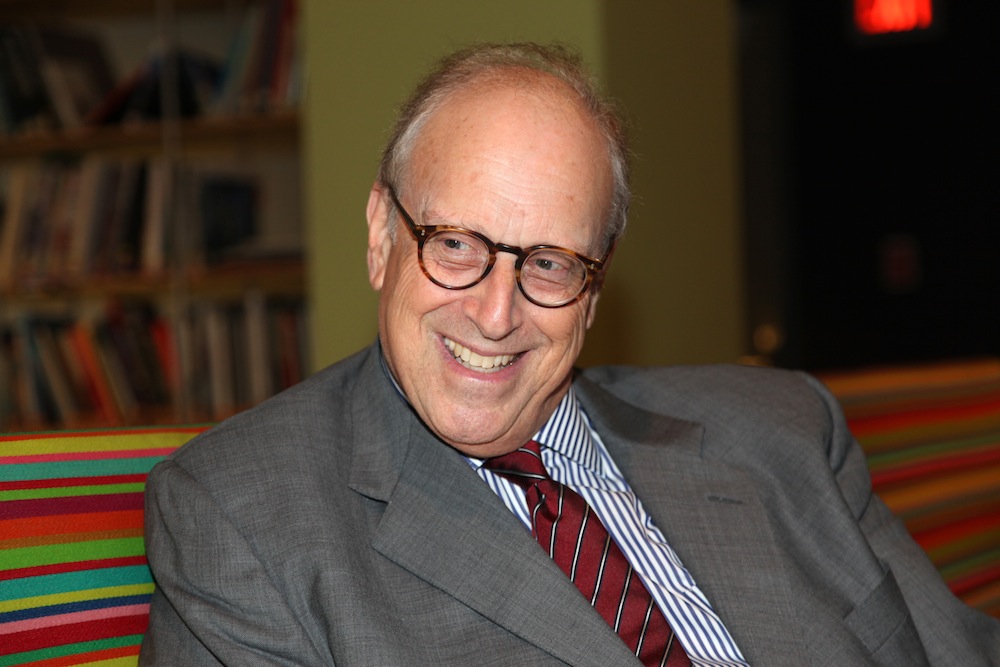
Michael Hanemann is a sustainability scholar at Arizona State University. He is an environmental economist who works in the areas of water economics and policy, climate change, and non-market valuation. Before participating in a panel on whether we’ll ever have clean water around the world, he talked about his shifting ideas about hygiene and why he finds most desserts impossible to refuse (both of which have to do with growing up in England) in the Zócalo green room.
What dessert do you find impossible to refuse?
All of them. I grew up in England, where there was a high consumption of sugar, and my parents were refugees from Germany and Austria who, particularly my father, loved chocolate. Basically, it’s very hard for me to refuse any dessert.
When’s the last time you drank bottled water?
Five minutes ago.
What keeps you up at night?
Trying to introduce reform into water rights in California. More generally, I’m very concerned about climate change and the vulnerabilities we face in California and the U.S.—not just poor countries and small island nations in the Pacific. I think threats from climate change are systematically underestimated, and one major activity is trying to improve the economic analysis that’s done on climate change to better represent these things. But also I’ve been fascinated by water, and to put it simply, I think California has the most dysfunctional system of managing water of any Western state. I’m feeling impatient, and I don’t want us to wait another century to do something.
When did you last break a sweat?
You may or may not be able to tell this, but I don’t exercise or do anything like that. I’m entirely sedentary, so I break a sweat dashing for a plane. I fly a lot.
What do you do in Phoenix when you’re homesick for England?
Here’s the thing: I’ve spent my whole career in America. I came to do my Ph.D. And the two, three things I like about England: I love the theater, so I go to the National Theatre Live, the movie of the National Theatre, which you can do in Phoenix and other places. I love some of the English newspapers, like The Guardian or the TLS. Academic book reviews in England are a blood sport. They’re subtle but deadly. It’s an acquired taste but a taste I did acquire. I read those here.
What’s your biggest water crime against humanity?
I’m not sure that I have any. I can tell you my greatest water virtue, which is now past. When I was growing up in England, bathing was pursued less ardently than in the United States, and so showering or taking a bath once a week was considered adequate. So the crime might be that I stopped doing that since I came to America, became an American, married an American, and adopted American standards of hygiene.
What do you wake up to?
Nothing. That is, I typically become awake at some time and look at the clock. I used to work late, go to bed at 2 a.m., get up late—and now I tend to go to bed early and get up at 6:00 or, this morning, 4:00, and start doing work that I didn’t finish the day before. So I wake up to a sense that I’m behind.
What’s your favorite season?
I suppose it’s the fall. I grew up in the north of England in Manchester, which is gray year-round, so growing up I didn’t have a big sense of seasons. When I was a graduate student on the East Coast, the fall was glorious.
How do you like your eggs?
I like them fried, but in America this is called sunny side-up, so I have to remember to say that.
What’s the best advice you’ve ever been given?
The only advice that comes to my mind has to do not with personal relationships but actually with disputes and disagreements. If you’re in a disagreement with somebody, and you’re fortunate enough that you think you have the stronger position, and therefore the other person, if he or she were rational, would back down. The advice I was given is that’s a mistake. For many people it’s necessary to have the train wreck before they will reconsider, so you can’t count on prudence for avoiding conflicts.



